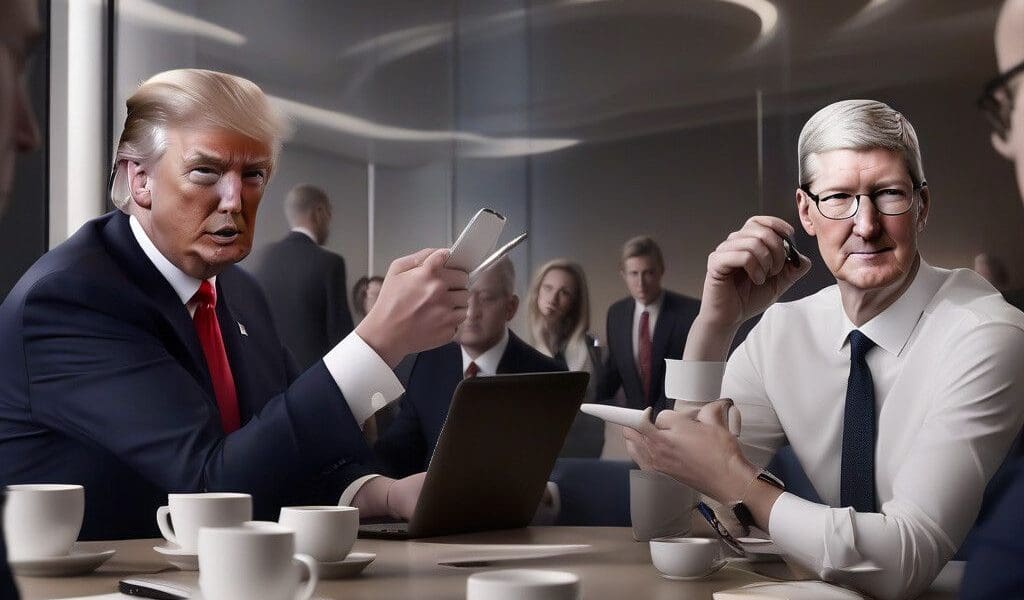Trump Discusses EU Fines with Apple CEO Tim Cook
In a recent podcast appearance, former President Donald Trump revealed he has had discussions with Apple CEO Tim Cook regarding hefty fines levied by the European Union (EU). The latest fines, amounting to around $17 billion, have sparked concerns among American businesses about regulatory pressures in foreign markets. Trump’s assertion is just a part of a larger conversation about the future of American industries and the perceived challenges posed by international regulations.
Trump indicated that Cook had shared details regarding a $15 billion penalty from the EU, along with an additional $2 billion fine, although specifics were not confirmed by Apple. This development comes amidst increasing scrutiny by European regulators aimed at curbing the influence of large tech companies and fostering a competitive market environment.
One considerable challenge Apple has faced includes a court ruling that mandated the tech giant to pay approximately $14 billion in back taxes to the Irish government. Such developments have been seen not merely as financial burdens but also as threats to the operational landscape for multinational corporations. Alongside, Apple encountered a $2 billion antitrust fine recently imposed by the EU, following accusations that the company restricts competition in the music streaming sector through its App Store policies.
In the podcast, hosted by entrepreneur Patrick Bet-David, Trump reaffirmed his commitment to protecting American businesses against what he termed as “unfair treatment.” He stated, “Tim, I got to get elected first. But I’m not going to let them take advantage of our companies.” This statement reflects Trump’s long-standing stance of prioritizing American interests in international trade and regulatory discussions.
The conversation between Trump and Cook is significant in the context of the upcoming presidential election on November 5, where Trump is challenging current Vice President Kamala Harris. As the election approaches, discussions regarding trade, regulation, and the economy are expected to dominate the political agenda.
Furthermore, the ongoing EU investigations into major tech players, including Apple, illustrate a broader trend in global digital governance. European regulators are aiming to promote fair competition and ensure that large corporations don’t dominate markets at the expense of smaller businesses. This regulatory scrutiny aligns with the EU’s Digital Services Act and Digital Markets Act, which introduce stringent requirements for tech giants operating in Europe.
Companies like Apple are increasingly at the forefront of these regulatory pressures, warranting the attention of political figures like Trump who are seeking to position themselves as defenders of U.S. corporate interests.
In light of Apple’s substantial economic contributions and its role as a major employer in the U.S., the enforcement of hefty fines can have ripple effects not only on the company’s stock prices but also on employment and investment decisions in the tech industry.
As the political landscape unfolds, the intersection of technology, international trade regulations, and corporate governance remains a critical area to watch. Stakeholders within the tech industry, consumers, and policymakers must navigate these complex dynamics to better understand the future of digital commerce and what lies ahead for American companies facing mounting international competition.
While the results of these discussions and the upcoming election remain uncertain, one thing is clear: the balance between international regulations and the interests of American corporations is a developing narrative that will continue to shape both economic policy and the tech landscape in the years to come.








